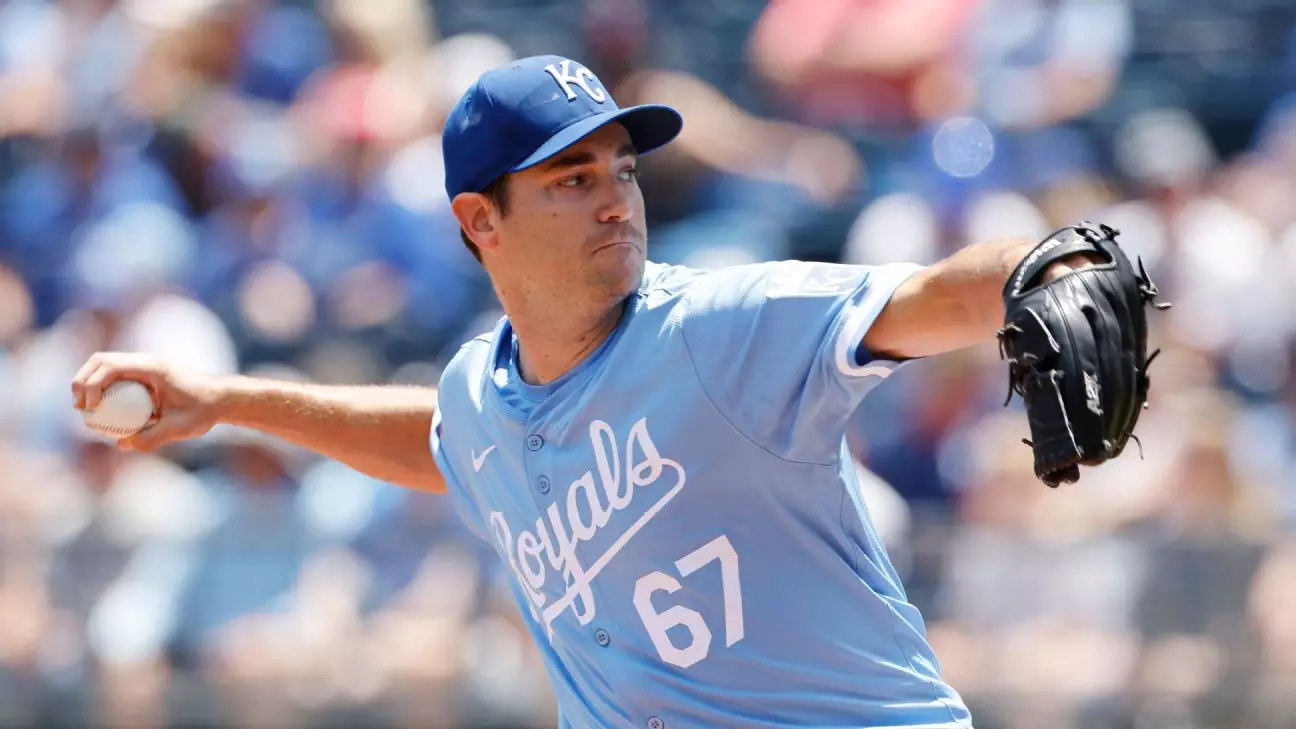In the fast-paced, data-driven world of Major League Baseball, the emphasis on statistics, prospects, and transactional moves often overshadows the human element that binds a team together. The recent spotlight on Kansas City Royals pitcher Seth Lugo exemplifies how a player’s true worth extends beyond the mound, especially when loyalty, resilience, and intrinsic motivation come into play. Lugo, a seasoned veteran in his mid-30s, demonstrated that even amidst swirling trade rumors and external pressures, the core qualities of professionalism and team dedication remain invaluable. Teams should recognize that retaining such players—not merely for their on-field performance but for their leadership and morale—is critical to fostering a culture of unwavering commitment.
Lugo’s performance against the Chicago Cubs—shutting down the lineup with precision, despite the oppressive heat, and maintaining focus amid rumors—illustrates a broader truth: talent alone does not define a player’s significance. A pitcher’s ability to stay mentally resilient, to embrace the challenge of pressure, and to be a stabilizing force in the clubhouse are qualities that cannot be quantified yet profoundly influence team success. The narrative surrounding Lugo underscores an essential insight: the value of loyalty in sports is often underestimated and, in many cases, overlooked in favor of short-term gains.
Trade Talks and the Dilemma of Short-Term Gains vs. Long-Term Stability
The impending MLB trade deadline is notorious for stirring chaos, compelling franchises to make difficult decisions that balance immediate competitiveness against future prospects. For a team like the Royals—characterized by a rebuilding phase—the temptation to cash in on veteran assets such as Lugo is strong. His proven track record, combined with a contract that could attract suitors, puts him squarely in the trade spotlight. However, the decision to move such a player should not be solely based on future trade value; it must consider the impact on team chemistry and current morale.
Lugo’s expressed desire to stay with Kansas City exemplifies a rare yet powerful sense of loyalty—an element that can galvanize a team during its most uncertain times. His statement of preferring to contribute to the Royals’ success rather than chase greener pastures resonates deeply. It hints at a player who understands his role not just as a performer but as a stabilizer amid the turbulence of a rebuilding process. While a transaction might make sense on paper, sacrificing a veteran who embodies perseverance and leadership could undermine the team’s internal cohesion.
The dilemma, therefore, becomes a question of whether short-term gains in trade value outweigh the long-term stability that comes from maintaining a roster full of players committed to the organization’s identity. Lugo’s willingness to focus on his routine and performance, irrespective of external rumors, sets a standard for other players and challenges front offices to reconsider how they value the intangible aspects of building a resilient team.
The Human Element as a Catalyst for Future Success
Baseball success is often attributed to statistics, scouting reports, and game strategies—yet at its core, it is a human game played by individuals motivated by pride, loyalty, and a desire to be part of something bigger than themselves. Lugo exemplifies a player who understands that the true impact of his presence extends beyond the scoreboard; it influences team dynamics, locker room chemistry, and fan engagement.
While the trade deadline looms, organizations must reflect on whether their focus is solely on incrementally improving the roster or on cultivating a winning culture rooted in trust and consistency. Players like Lugo serve as living proof that veteran stability and commitment can serve as catalysts for future breakthroughs, even if immediate winning is not guaranteed. They provide continuity, experience, and emotional resilience—qualities that cannot be bought in the auction block.
For teams on the fringes of playoff contention, the challenge is clear: balancing strategic moves with respect for the individuals who exemplify perseverance and pride in their craft. In doing so, organizations affirm that the true power of baseball lies not just in how many games are won or lost but in how effectively they nurture their most committed athletes. The belief that loyalty can be a strategic asset offers a paradigm shift, urging clubs to embrace their unsung heroes as pivotal figures in building a sustainable, thriving franchise.

